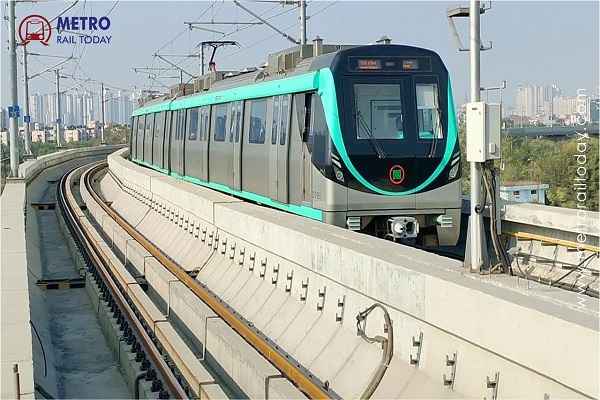 Ayesa India wins Design Consultancy Contract for Noida Metro Aqua Line Extension
Ayesa India wins Design Consultancy Contract for Noida Metro Aqua Line Extension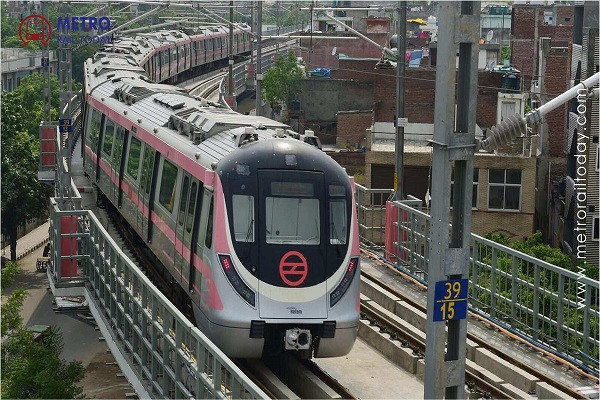 Vossloh Cogifer bags Track Infrastructure Contract for Delhi Metro Phase 4 Corridors
Vossloh Cogifer bags Track Infrastructure Contract for Delhi Metro Phase 4 Corridors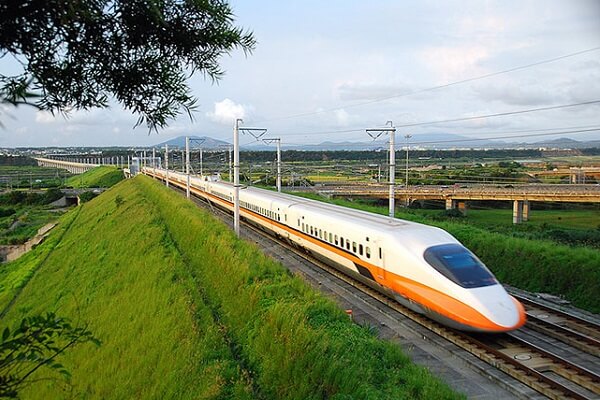 Railway finalised revised alignment for ₹16,000-crore Pune–Nashik Semi High-Speed Rail Corridor
Railway finalised revised alignment for ₹16,000-crore Pune–Nashik Semi High-Speed Rail Corridor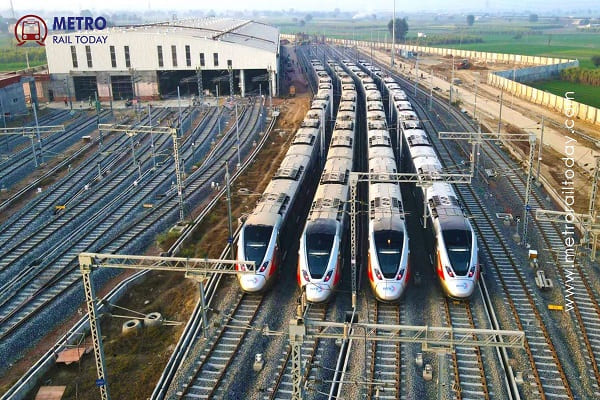 India’s First High-Speed, Signalling-Integrated CMV launched for Namo Bharat RRTS Corridor
India’s First High-Speed, Signalling-Integrated CMV launched for Namo Bharat RRTS Corridor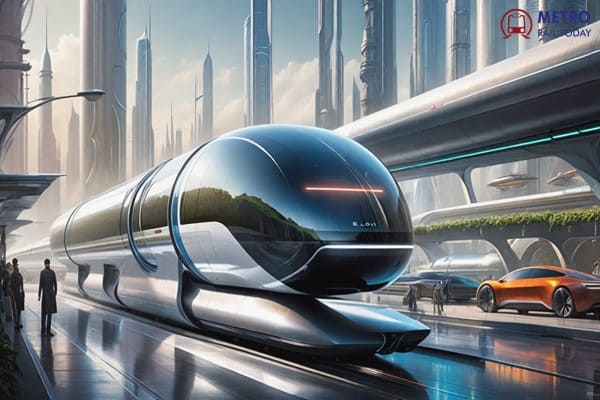 TuTr Hyperloop secures First-Ever Order from Deendayal Port Authority
TuTr Hyperloop secures First-Ever Order from Deendayal Port Authority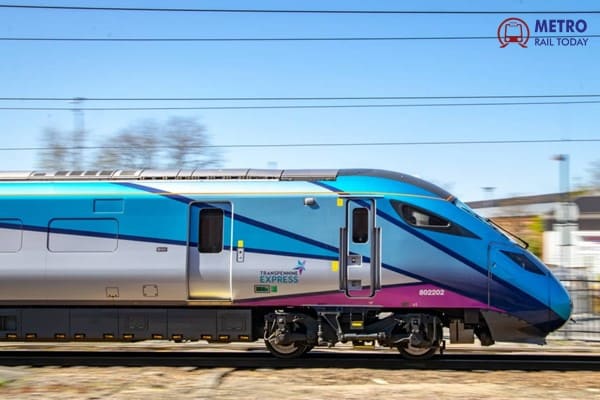 BEML bags ₹157 Crore Order from Loram Rail for Switch Rail Grinding Machines
BEML bags ₹157 Crore Order from Loram Rail for Switch Rail Grinding Machines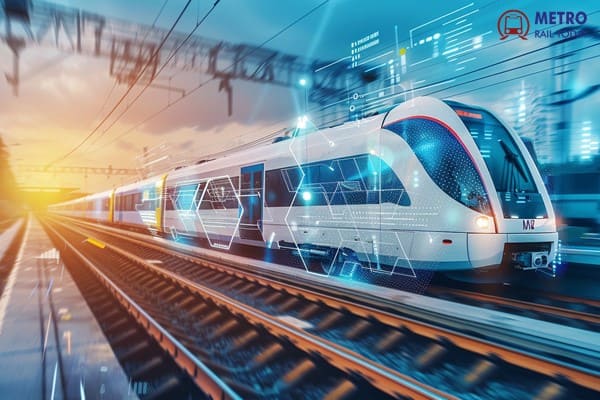 MxV Rail and KRRI forge Global Research Alliance to accelerate Next-Generation Rail Technologies
MxV Rail and KRRI forge Global Research Alliance to accelerate Next-Generation Rail Technologies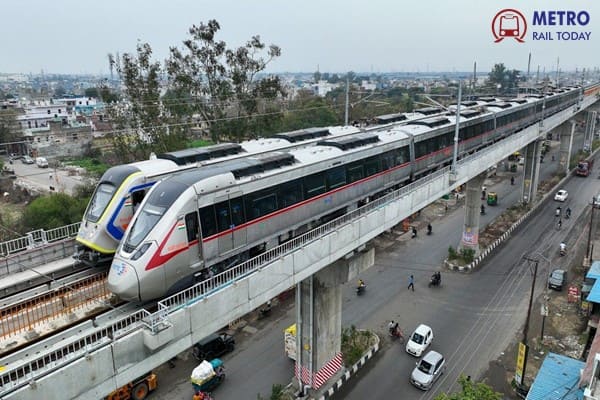 Uttarakhand seeks Pre-Feasibility Study for Meerut-Haridwar-Rishikesh RRTS Corridor
Uttarakhand seeks Pre-Feasibility Study for Meerut-Haridwar-Rishikesh RRTS Corridor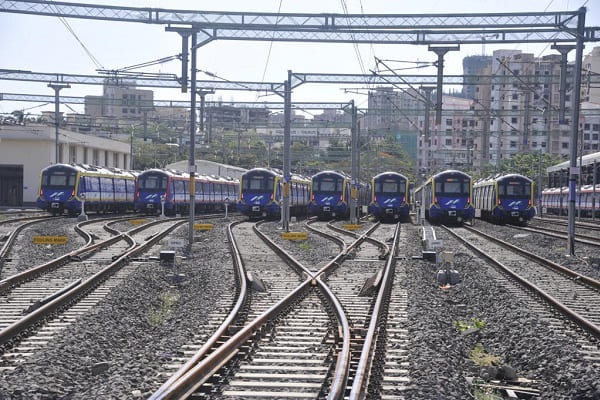 RIFTEK achieves major milestones in partnership with Indian Metro Rail Systems
RIFTEK achieves major milestones in partnership with Indian Metro Rail Systems Egypt all set to launch Alexandria Metro Phase 1 by 2026
Egypt all set to launch Alexandria Metro Phase 1 by 2026
Maharashtra to launch Unified Metro Rail Authority for Mumbai Metropolitan Region
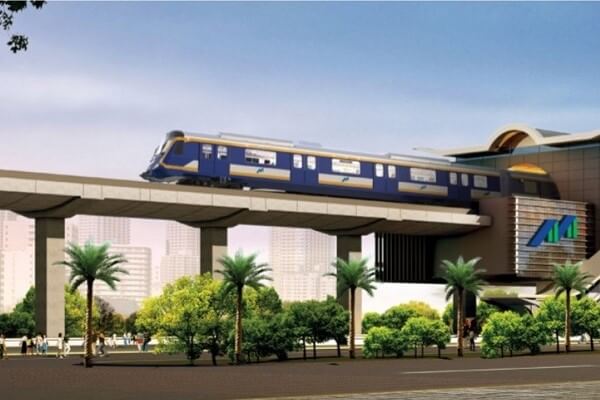
Mumbai, India (Metro Rail Today): In a landmark move aimed at improving coordination and operational efficiency across Mumbai’s rapidly expanding metro network, the Maharashtra government has constituted a high-level committee to explore the creation of a Unified Metro Rail Authority (UMRA) for the Mumbai Metropolitan Region (MMR).
The decision, issued through a Government Resolution (GR) by the Urban Development Department on November 6, marks a major step toward integrating the city’s fragmented metro rail ecosystem — currently managed by multiple agencies including MMRDA, MMRCL, MMMOCL, Maha Metro, and CIDCO.
The newly formed committee, chaired by Sanjay Mukherjee, Metropolitan Commissioner, MMRDA, has been tasked with examining the challenges arising from the existing multi-agency framework and recommending a detailed roadmap for the creation of a single unified metro entity.
The committee will:
-
Evaluate institutional overlaps and operational inefficiencies;
-
Recommend an integrated management structure;
-
Prepare a roadmap for asset transfer, valuation, and consolidation; and
-
Study successful international models such as Transport for London (TfL) and Singapore’s Land Transport Authority (LTA) for best practices in unified urban mobility governance.
The panel has been directed to submit its report within three months.
Commenting on the development, Sanjay Mukherjee said the integration was a natural progression as multiple metro lines in Mumbai are nearing completion.
“Now that several metro lines are being commissioned one by one, and with the Mumbai One App allowing commuters to plan their journeys seamlessly across different modes of transport — including bus, train, and metro — this step will go a long way in unifying metro operations under one umbrella,” he said in a post on X.
Currently, the Mumbai Metropolitan Region has multiple operational and under-construction metro lines being handled by different agencies. This fragmented structure often results in administrative overlap, delays in coordination, and inconsistent passenger experiences across lines.
The formation of the committee signals Maharashtra’s intent to evolve toward a coordinated multi-modal transport ecosystem, aligned with global standards. By integrating fare collection systems, maintenance, and service planning under one authority, Mumbai could emulate global models like London’s TfL or Singapore’s LTA — both of which manage multiple modes of urban transport under a single governance framework.
“The creation of a Unified Metro Rail Authority for Mumbai is both visionary and timely,” said Mrs. Mamta Shah, MD & CEO of Urban Infra Group. “With multiple agencies currently handling different corridors, integration under one entity will not only streamline operations but also provide commuters with a seamless, user-friendly experience. This step will make Mumbai’s metro ecosystem more efficient, transparent, and commuter-centric.”
Once implemented, the Unified Metro Rail Authority is expected to:
-
Ensure consistent service quality across all lines;
-
Enable single-ticket or common mobility card usage across modes;
-
Strengthen last-mile connectivity initiatives; and
-
Enhance revenue generation through integrated operations and asset management.
With the MMR’s metro network projected to exceed 350 km by 2030, this unification could lay the foundation for a world-class, coordinated transit system that supports Mumbai’s growing urban mobility needs.




